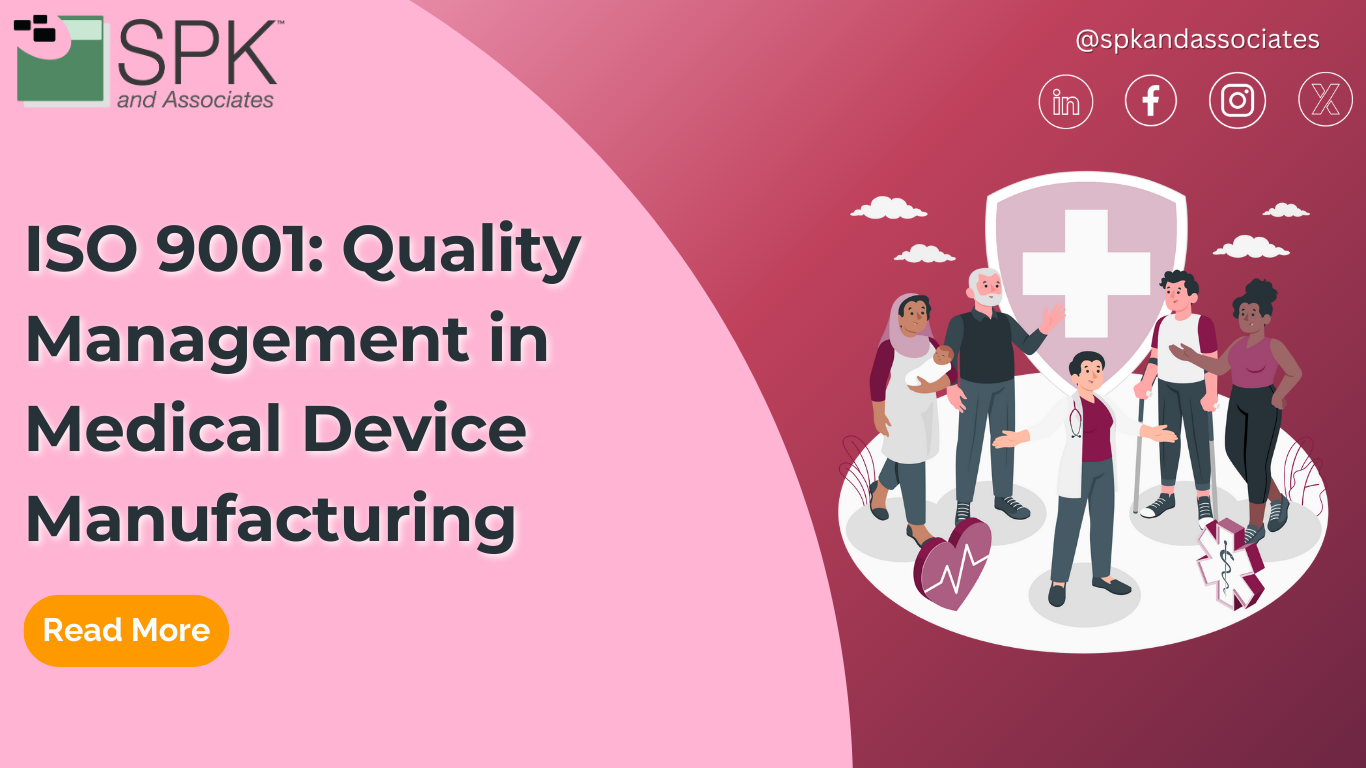Ensuring medical device quality is critical. So, you’ll need to understand and meet ISO requirements to appeal to potential buyers and streamline management. In this blog, we discuss ISO 9001 as it relates to medical device manufacturing, what your business can do to satisfy these standards, and how to get your ISO 9001 certification.
What Is ISO 9001?
ISO 9001 is an International Standard Organization requirement defining the standards for quality management. So, why are quality management standards important? These standards are often used by product manufacturers to:
- Enhance their output.
- Exhibit their dedication to quality.
- Satisfy client needs.
Additionally, they offer guidance for creating, implementing, upholding, and continuously enhancing a quality management system (QMS). ISO 9001 also happens to be the most well-known and is the only certifiable standard of the ISO 9000 family.

What Are The Requirements?
ISO 9001 mainly focuses on collecting customer needs and expectations, customer satisfaction, and the continuous improvement of products and services. Although the following requirements frequently mention QMS, it is important to note that ISO 9001 is about improving the quality of products, not the QMS itself. However, a thorough QMS helps maintain product quality. Now that we understand the purpose of ISO 9001, let’s summarize the requirements:
- Planning: A business’s QMS must include ways to achieve goals and improve efficiency.
- Performance Evaluation: Organizations must detail possible factors that may impact their results.
- Support: Businesses need to commit resources such as skilled workers, suitable tools, and adequate workspaces.
- Auditing: Businesses must track, measure, examine, and assess how effectively their QMS is implemented by Key Performance Indicators (KPIs). This is done by conducting planned internal audits that analyze this information.
ISO 9001 vs. ISO 13485
When discussing medical device manufacturing standards, we obviously need to mention ISO 13485 too. ISO 13485 is the standard defining quality management specifically for the lifecycle of medical devices. Let’s dive into a quick comparison of the two.
These standards do not address industry-specific requirements.
They also do not address regional laws.
Additionally, they do not require role definition when assigning responsibilities.
Lastly, the standards’ main focus is product quality.
Both allow for ISO certification.
They both define resource management as the different tools, structures, and IT resources needed to create a quality product.
In addition to the main focuses listed, both standards heavily focus on customer satisfaction.
These standards cover ISO 9001 requirements and build upon them.
They also inform medical device companies they must comply with regional laws.
Some markets require ISO 3485 certification to sell medical devices such as in the EU.
The standards require organizations to identify a member who is responsible for each aspect of the QMS.
Lastly, they include in-depth specifications on safety, making this their main focus.
Essentially, ISO 13485 builds upon the ISO 9001 standards to ensure the medical devices they are manufacturing are not just good quality, but safe for its consumers. If you have questions about ISO 13485 and how it compares to FDA compliance, check out this vlog.
Why is ISO 9001 Important to Medical Device Manufacturing?
There is a broad scope of benefits for medical device manufacturers who comply with the ISO 9001 standards:
- Process efficiency: ISO 9001 encourages continuous improvement and documentation of manufacturing processes, eliminating inefficiencies.
- Informed decision-making: The standards spotlight the importance of utilizing data to make business-improving decisions.
- Risk management: Additionally, the ISO 9001 standards help manufacturers recognize threats and avoid expensive mistakes.
- Customer Satisfaction: Lastly, following the quality control standards creates trust from satisfied consumers as they understand the procedures companies must follow to get their devices to the public.
The trust created by complying is great, but if manufacturers want to go a step further, they can also secure ISO certification.

How to Get Your ISO 9001 Certification
Although it is not a legal requirement, many organizations prefer their manufacturers to be ISO 9001 certified. Basically, this certification proves a manufacturer has implemented all of the key quality management requirements we previously covered. If a manufacturer would like to get certified, they may have a notified body (NB) or registrar conduct an audit. During this examination, the NB will inspect the QMS of the manufacturer and make sure it meets the ISO 9001 requirement standards.
QMS Software
Even if a manufacturer does not choose to get certified, it is good practice for them to keep track of all the standards they should be implementing. However, it can be difficult to monitor these manually, which is why there are many great QMS software on the market. A few we recommend are MasterControl and Greenlight Guru. Both are effective, but a unique factor of Greenlight Guru is it was built specifically for the medical device industry.
Ready to Implement ISO 9001?
Remember, product quality is not defined by ISO 9001. Instead, it is a set of standards to administer the production of goods. However, when following these standards, high-quality products are continuously the result. If you have any questions about ISO standards, the medical device industry, or QMS software, contact our team today.






